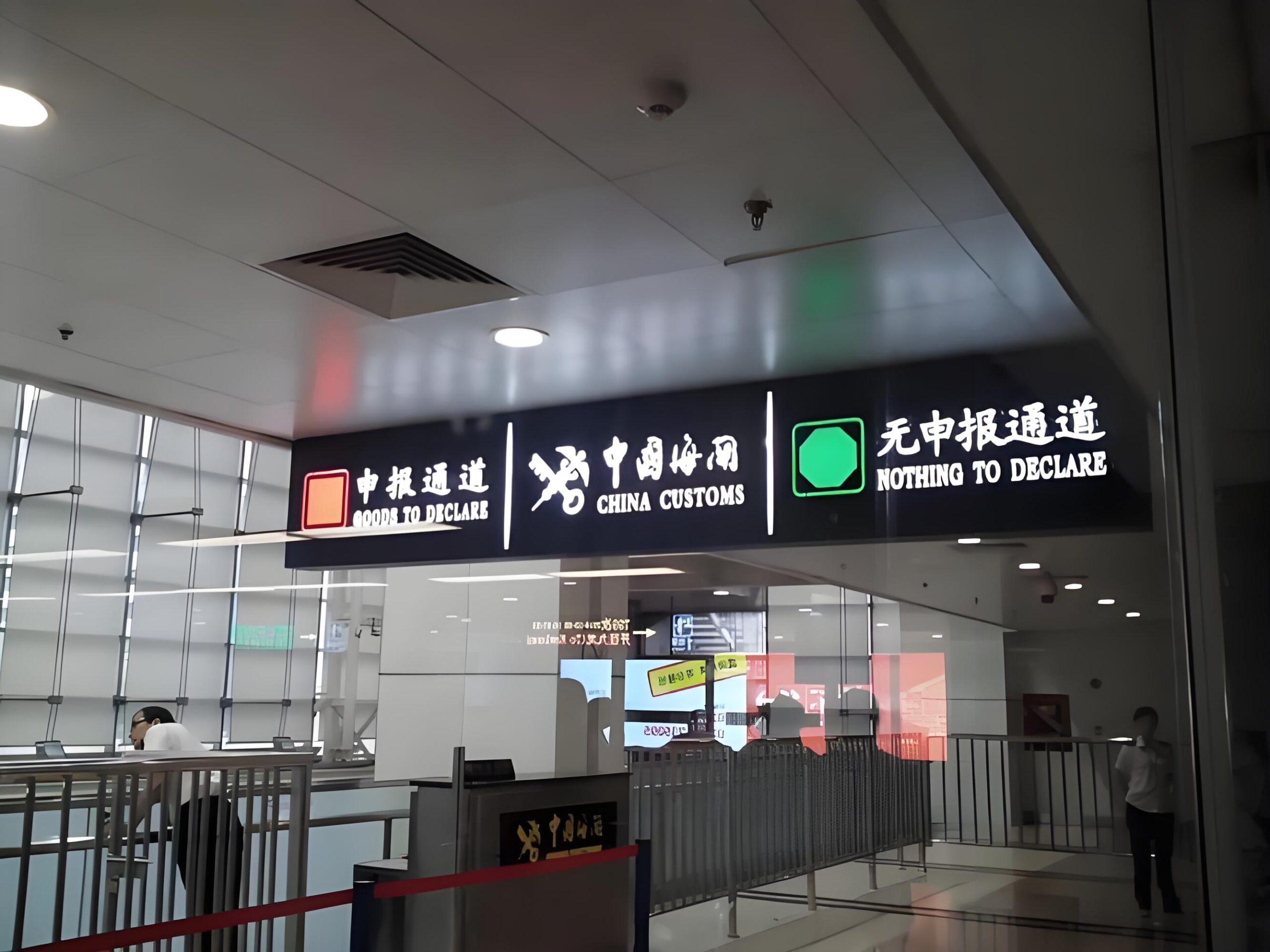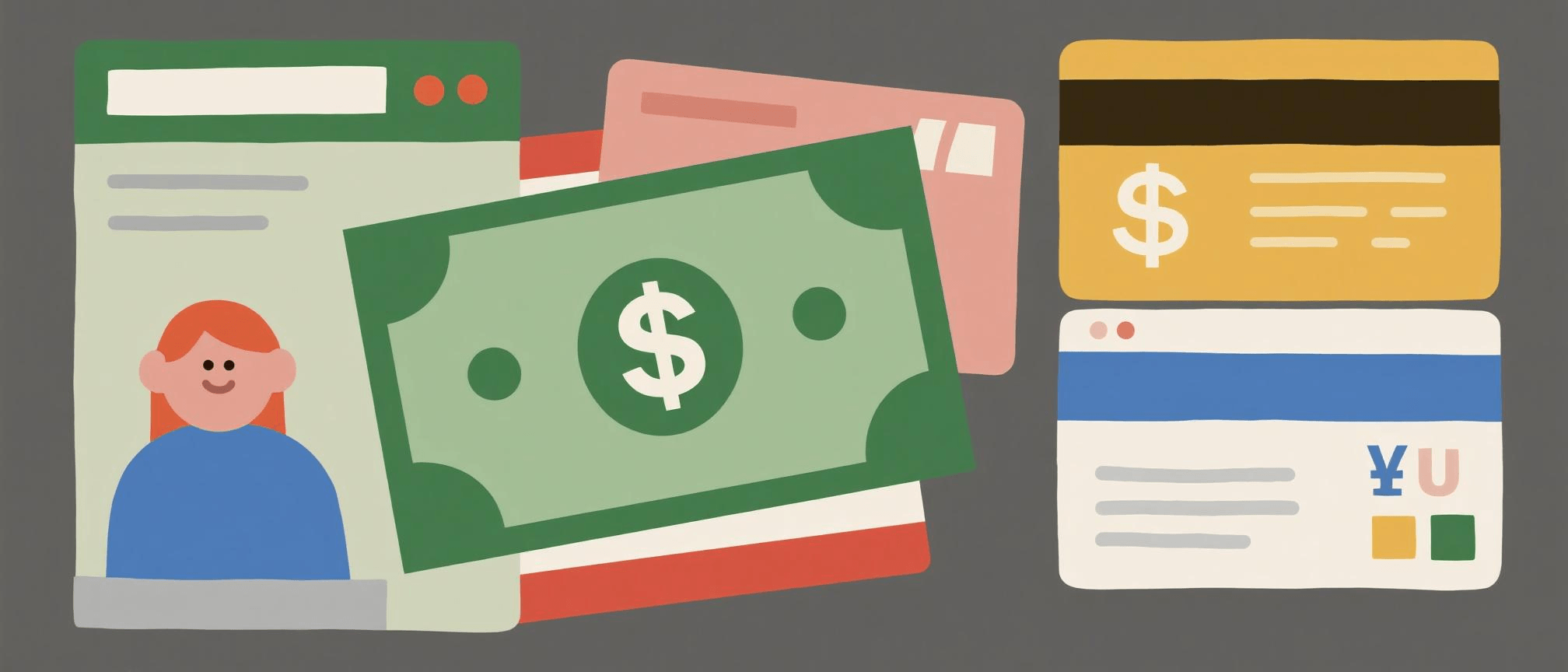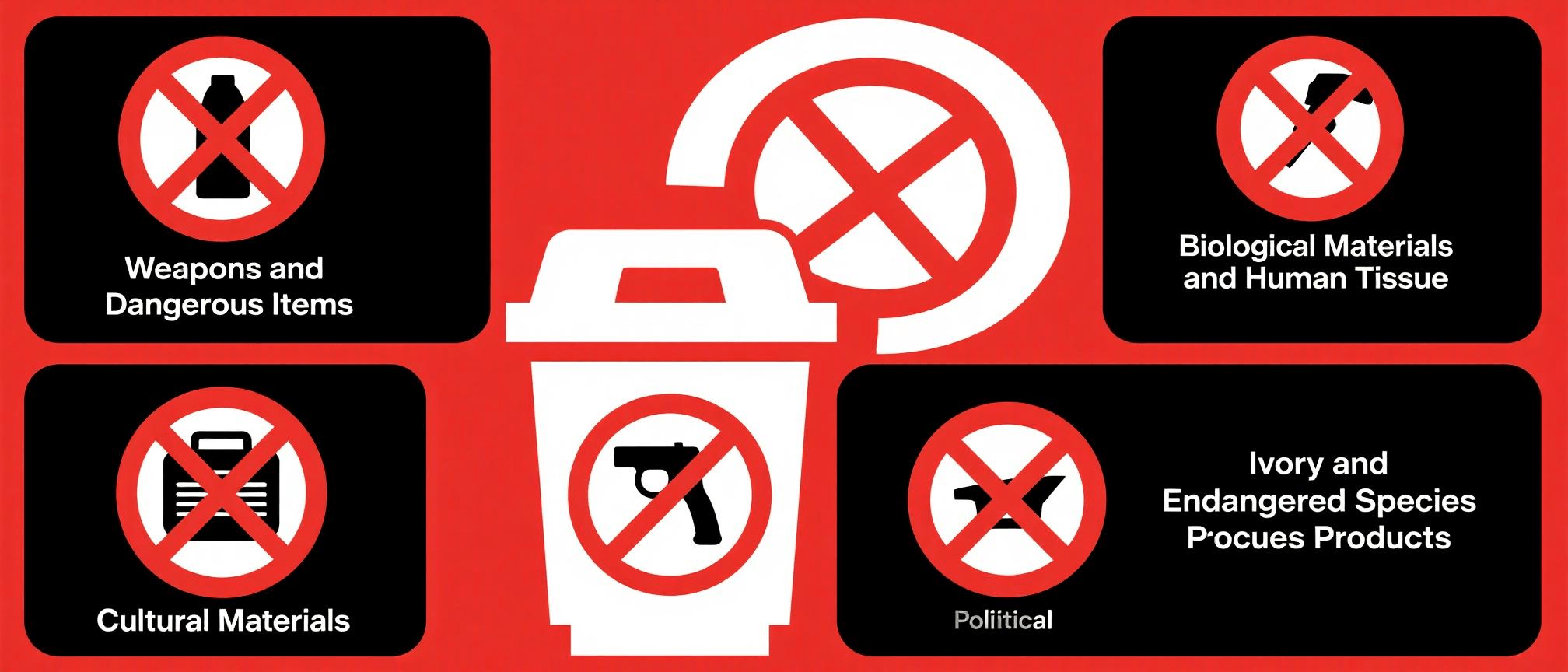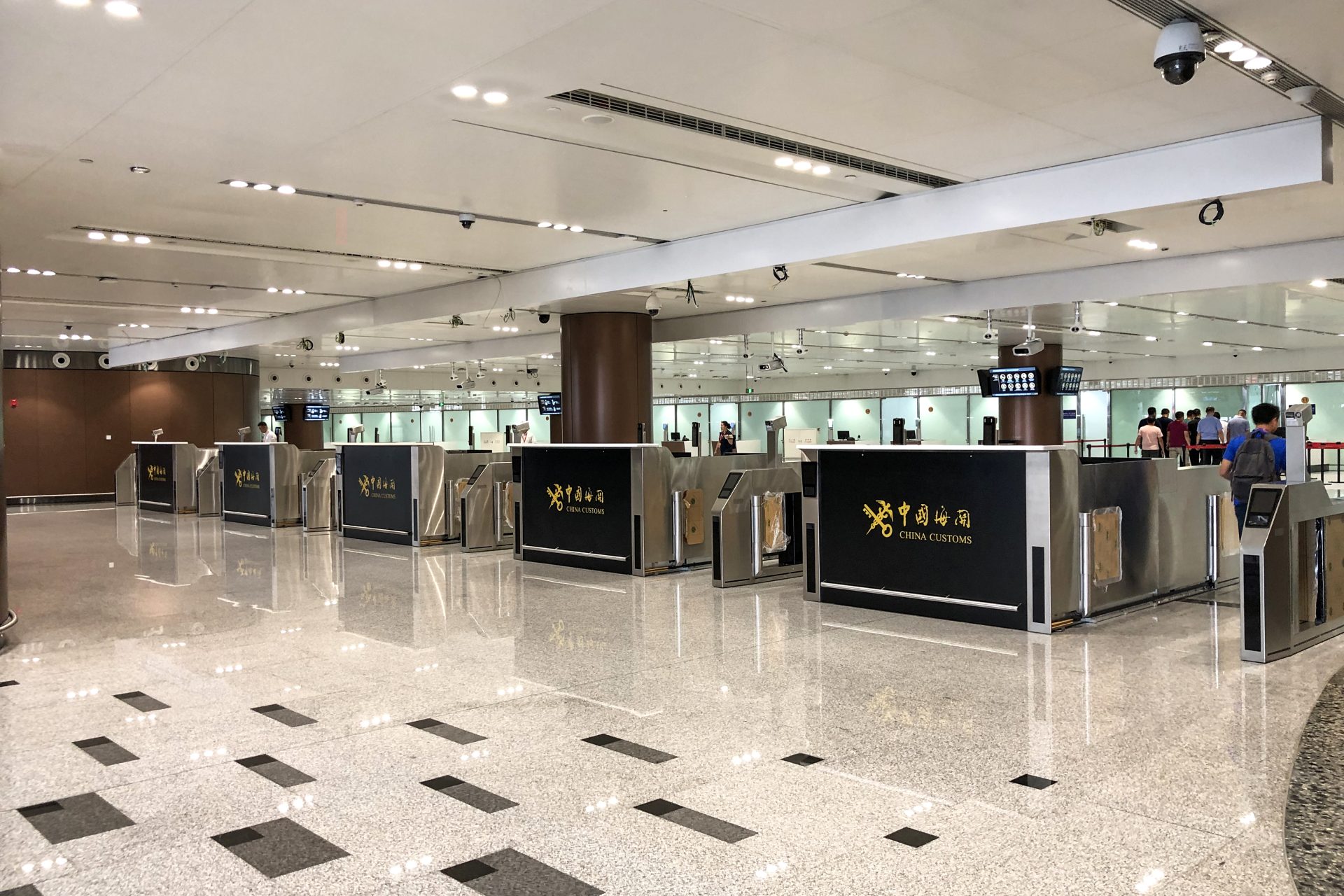What You Can Bring to China: Your Complete Customs Guide for Hassle-Free Travel
Planning your trip to China and wondering what you can pack? We’ve got you covered. After years of guiding travelers through China’s customs regulations, we know exactly what causes confusion at airports. This comprehensive guide breaks down everything you can bring to China in 2026.
China’s customs rules can seem complex, but they’re quite straightforward once you understand them. We’ll walk you through every category, from electronics to food, ensuring your arrival goes smoothly.
Table of Contents
Understanding China’s Customs Framework

China operates a dual-channel customs system. You’ll choose between the Green Channel (nothing to declare) or Red Channel (goods to declare). Most travelers use the Green Channel, but knowing when to use the Red Channel prevents delays.
The Chinese customs authorities updated their regulations in December 2024. Since the Measures for the Collection of Customs Duties, Value-added Tax and Consumption Tax on Entry Articles officially came into effect on December 1, 2024, travelers face new tax standards for certain items.
We recommend preparing your customs declaration before arrival. This saves time and reduces stress when you land.
Personal Use vs Commercial Quantities
China distinguishes between personal use and commercial quantities. Personal use items face fewer restrictions and lower taxes. Commercial quantities trigger additional scrutiny and paperwork.
For personal items, reasonable quantity means one of each electronic device. Two identical phones might raise questions about commercial intent.
Customs Regulations Summary Table
Item Category | Duty-Free Limit | Declaration Required | Prohibited Items |
|---|---|---|---|
Electronics | 1 each for personal use | If value >RMB 5,000 | None for personal use |
Cash | USD 5,000 / RMB 20,000 | Above limits | Counterfeit currency |
Tobacco | 400 cigarettes OR 100 cigars | Commercial quantities | None for personal limits |
E-cigarettes | Personal use only | Vape oil >100ml | Flavored e-liquids |
Alcohol | 2 bottles >12% alcohol | Commercial quantities | None for personal limits |
Food | Packaged commercial items | Fresh/agricultural items | Fresh produce, meat, seeds |
Medications | Personal use quantities | Controlled substances | CBD oil, cannabis products |
Pets | Dogs and cats only | All pets require permits | Other animals |
Precious metals | Personal jewelry | Valuable items | None for personal use |
Cultural items | Personal use | Antiques, valuable art | Ivory, endangered species |
1. Electronics: Phones, Laptops, and Cameras

Electronics cause the most confusion among travelers. Here’s what we know works smoothly at Chinese customs.
Smartphones and Tablets
You do not need to declare and pay the tax for your personal items, such as smart phone, tablet PC, laptop, and digital camera, if within reasonable quantity (one for each). This means your iPhone, Android phone, and iPad are fine without declaration.
We recommend bringing your phone in your carry-on bag. This makes it easier to show customs officers that it’s for personal use. Keep purchase receipts if your device is new or expensive.
Multiple phones require explanation. Business travelers often carry two phones – one personal, one work. Customs usually accepts this with proper documentation.
Laptops and Computers
Your laptop comes through customs without issues for personal use. Passengers carrying items for personal use, such as cameras, camcorders and laptops valued in excess of RMB 5,000 each, and which will be brought back from overseas, should complete Declaration Forms in duplicate.
Gaming laptops and high-end MacBooks exceed RMB 5,000 easily. We suggest completing declaration forms for expensive equipment. This protects you when leaving China with the same device.
Desktop computers require more paperwork. Unless you’re relocating, avoid bringing desktop PCs as tourist baggage.
Cameras and Photography Equipment
Professional camera equipment needs declaration if valuable. Your vacation camera and phone camera work fine without paperwork.
DSLR cameras, professional lenses, and video equipment over RMB 5,000 need declaration forms. Drone regulations are separate and more complex – research current drone laws before bringing one.
2. Money: Cash, Cards, and Currency Exchange

Money regulations are strict but clear. Understanding the limits prevents customs delays and legal issues.
Cash Limits
5,000 US dollars (or equivalent in any foreign currency) or 20,000 CNY is permitted without declaration. Amounts above these limits require documentation and declaration.
We always recommend declaring amounts near the limits. It’s better to be safe than sorry with financial regulations.
Credit Cards and Digital Payments
Credit cards have no limits or declaration requirements. Bring multiple cards from different networks. Visa and Mastercard work in major cities, but Alipay and WeChat Pay dominate daily transactions.
Cryptocurrency regulations are complex and changing. We advise against bringing crypto-related materials or discussing crypto investments with customs officers.
3. Food and Agricultural Products

Food restrictions protect China’s agriculture and public health. Some items face complete bans, while others need permits.
Prohibited Food Items
Seeds, plants and other propagating materials, tobaccos, grains & cereals, beans (Inspection approval should be prepared in advance) require special permits or face prohibition.
Seeds of any kind are strictly prohibited without special agricultural permits. This includes flower seeds, vegetable seeds, and fruit pits.
Dried flowers, pressed flowers, and plant materials for crafts may face restrictions. Fresh or dried plant materials risk confiscation.
Art supplies including certain paints and solvents may face restrictions. Water-based art supplies are generally fine, but oil-based materials might need declaration.
Fresh fruits, vegetables, and meat products are generally prohibited. This includes beef jerky, fresh apples, and homemade preserves. Processed and packaged foods have better chances of approval.
Allowed Food Items
Commercial packaged snacks usually pass customs inspection. Sealed candy, cookies, and non-meat products work well as gifts. Avoid items containing meat, dairy, or fresh ingredients.
Baby Formula and Child Care Products
Baby formula and specialized dietary products are allowed in reasonable quantities. Bring original packaging and receipts for expensive nutritional supplements.
Diapers, baby food, and child medications are generally permitted without restrictions. Formula must be in sealed, commercial packaging.
Personal Care and Hygiene Products
Birth control pills and contraceptives for personal use are allowed. Keep prescription medications in original packaging.
Tampons, pads, and feminine hygiene products have no restrictions. Bring reasonable quantities for personal use.
Personal care items like toothpaste, shampoo, and soap follow standard liquid restrictions for carry-on luggage but have no customs restrictions.
We’ve seen customs officers appreciate transparency about food items. Declare questionable items rather than hiding them.
4. Tobacco and Alcohol: Duty-Free Limits

China allows specific quantities of tobacco and alcohol without additional taxes.
Tobacco Products
An inbound passenger may carry 400 cigarettes, 100 cigars or 500 grams of tobacco duty-free. These limits apply per passenger, not per trip.
E-cigarettes and Vaping Products
E-cigarettes face complex regulations in China. E-cigarettes can be carried on airplanes, but the amount of cigarette oil carried is usually limited to less than 100ml. However, regulations are strict and changing.
We strongly advise checking current e-cigarette laws before travel. The law bans the sale of flavored e-cigarettes, other than tobacco flavor. Personal use devices may be allowed, but vaping in public spaces is heavily restricted.
Vape oil and e-liquids face particular scrutiny. Bring only small quantities for personal use and keep them in original packaging. We’ve seen travelers face confiscation when carrying large quantities of vape products.
Alcoholic Beverages
Two bottles of alcoholic beverage (of higher than 12 percent alcohol and less than 1.5 liters) enter duty-free. This covers most wine and spirits bottles.
Beer and lower-alcohol beverages face different rules. Multiple beer bottles might exceed reasonable personal use limits.
Premium alcohol requires declaration if extremely valuable. A $500 bottle of whiskey should be declared to avoid accusations of smuggling.
5. Medications and Medical Equipment

Medical items require careful planning and documentation.
Prescription Medications
Bring prescription medications in original packaging with doctor’s prescriptions. Translation into Chinese helps customs officers understand medical necessity.
Controlled substances face additional scrutiny. Opioids, stimulants, and psychiatric medications need detailed documentation. Contact Chinese consulates about specific medications before travel.
CBD Oil and Cannabis Products
CBD oil and cannabis-derived products are strictly prohibited in China. This includes CBD oils, hemp products, and any cannabis-related supplements. China has zero tolerance for cannabis products, regardless of THC content or legal status in your home country.
We strongly recommend leaving all CBD and cannabis products at home. Even products legal in your country can result in serious legal consequences in China.
Medical Equipment
Personal medical devices like CPAP machines and glucose meters are allowed. Bring medical certificates explaining their necessity.
Insulin and diabetic supplies including needles and glucose test strips are permitted for personal use. Carry prescription documentation and keep supplies in original packaging.
Large medical equipment or experimental devices need import permits. Standard personal medical supplies work fine without special permits.
6. Personal Items and Gifts

Understanding gift limits and personal item rules prevents customs surprises.
Clothing and Personal Effects
Used personal clothing has no restrictions. New clothing in commercial quantities might trigger import duties. Pack new items without tags if buying for personal use.
Luxury items like expensive watches or jewelry should be declared if valuable. We recommend wearing expensive jewelry rather than packing it.
Gifts and Souvenirs
Reasonable quantities of gifts for Chinese friends are welcome. Avoid identical items in large quantities – this suggests commercial importing.
Cultural items from your home country make excellent gifts. Books, local crafts, and regional specialties are usually appreciated and approved.
Coffee, Tea, and Beverages
Coffee beans and ground coffee are generally allowed for personal consumption. Commercial quantities require permits.
Tea from your home country is usually welcome, but avoid bringing Chinese tea back into China – this seems odd to customs officers.
Protein powder and nutritional supplements are allowed in reasonable quantities. Keep original packaging and avoid excessive amounts that suggest commercial importing.
Tools and Kitchen Items
Kitchen knives and cooking tools require special attention. Professional chef knives should be declared, while basic cooking utensils are usually fine.
Multi-tools and Swiss Army knives face restrictions on blades over certain lengths. Pack these items in checked luggage only.
Power tools and professional equipment need declaration if valuable. Hobbyist tools in small quantities are usually acceptable.
7. Prohibited and Restricted Items

Some items are completely banned from entry into China.
Weapons and Dangerous Items
Arms, imitation arms, ammunition and explosives of any kind are prohibited. This includes toy guns that look realistic and martial arts weapons.
Pepper spray and personal defense items are generally prohibited. Check with Chinese consulates about specific self-defense items.
Biological Materials and Human Tissue
Licensed imported human blood and its products, microorganisms, human tissue and other biological products face strict prohibition without proper permits.
This includes research materials, biological samples, and medical specimens. Only authorized medical facilities can import such materials.
Ivory and Endangered Species Products
All ivory products are strictly prohibited, regardless of age or origin. This includes antique ivory, carved items, and jewelry containing ivory.
Endangered and precious rare animals and plants (including their specimens), their seeds and reproducing materials face complete prohibition.
Political and Cultural Materials
Manuscripts, printed matter, films, photographs, gramophone records, cinematographic films, loaded recording tapes and videotapes, etc. which are detrimental to China’s politics, economy, culture, and ethnics face prohibition.
Religious materials for personal use are generally okay. Commercial quantities or materials for distribution require special permits.
DIG DEEPER: What Not to Bring to China: Essential Tips for Travelers
8. Bringing Pets to China

Bringing pets to China involves complex procedures and strict requirements.
Allowed Animals
Only dogs and cats are classified as pets in China. One pet is allowed per carrier per entry. Other animals like rabbits, guinea pigs, or birds cannot be imported as pets.
Required Documentation and Procedures
Pets must be implanted with electronic microchips for identification. All pets require extensive health documentation including:
- Health certificates from licensed veterinarians
- Rabies vaccination records
- Additional vaccinations as required
- Import permits from Chinese authorities
Quarantine Requirements
All pets must complete a 30-day quarantine in GACC designated facilities upon arrival. During quarantine, pets undergo clinical examination and laboratory testing. They are released only after being determined healthy.
The quarantine facilities provide air-conditioned units with outdoor areas for dogs and catteries for cats. While intimidating, these facilities maintain proper care standards.
DIG DEEPER: Complete Guide to Bring Pet to China (Latest Requirements & Tips in 2026)
9. Valuable Items: Jewelry, Gold, and Precious Metals

Valuable items require special attention and potential declaration at Chinese customs.
Gold, Silver, and Precious Metals
Gold, silver and other valuable items need to be declared when exiting the country. For entering China, reasonable quantities of personal jewelry are generally fine without declaration.
Commercial quantities of precious metals face import duties and restrictions. Investment-grade gold bars or large quantities of silver require proper documentation.
We recommend wearing valuable jewelry rather than packing it. This demonstrates personal use and reduces theft risks.
Expensive Jewelry and Watches
Personal jewelry and expensive watches for individual use don’t require declaration in most cases. However, extremely valuable items over certain thresholds should be declared to prevent exit problems later.
Multiple identical expensive items might suggest commercial importing. Stick to reasonable personal quantities.
10. Cultural Items and Antiques

Cultural artifacts face complex regulations designed to protect China’s heritage.
Antiques and Cultural Relics
Valuable cultural relics and other relics prohibited from exportation face restrictions. Bringing antiques INTO China is generally allowed, but taking them OUT requires special certificates.
Modern reproductions and tourist souvenirs are fine. Authentic antiques, especially those that might be considered cultural heritage, need documentation.
Religious and Cultural Materials
Personal religious items for individual use are generally permitted. Commercial quantities or materials for distribution require special permits.
Books, art, and cultural materials should avoid political content critical of China. Personal reading materials are usually fine.
Ivory and Endangered Species Products
All ivory products are strictly prohibited, regardless of age or origin. This includes antique ivory, carved items, and jewelry containing ivory.
11. Technology and Digital Content

Digital content faces unique considerations in Chinese customs.
Software and Digital Media
Personal software licenses are generally fine. Commercial software distribution requires different permits.
Digital content on your devices rarely faces scrutiny for personal use. Avoid commercial quantities of copyrighted material.
VPN and Internet Tools
VPN software exists in legal gray areas. Research current internet regulations before bringing VPN tools.
DIG DEEPER: Best VPN for China: Essential Guide for Travelers
Customs Declaration Process
Understanding China’s declaration system requires strategic thinking beyond basic form completion. Chinese customs employs sophisticated risk assessment algorithms that analyze your travel patterns, declaration consistency across visits, and behavioral indicators during processing.
The Digital Trail: Your passport connects to historical entry records. Officers review previous declarations, looking for inconsistencies. A laptop declared on one trip but not the next triggers questions about compliance understanding. We recommend maintaining detailed records of all previous declarations.
Strategic Channel Selection: The Green vs Red Channel decision carries significant weight. Once you choose Green Channel, officers assume nothing requires declaration. Discovery of undeclared items triggers enhanced scrutiny and potential penalties. When uncertain about any item, choose Red Channel – officers prefer cautious travelers over those who “accidentally” forget declarations.
Declaration Form Mastery: Vague descriptions invite lengthy questioning. Instead of “electronic equipment for business,” write “Dell Precision laptop, model 7560, purchased March 2024, value USD 3,200, for CAD demonstrations.” Specific descriptions demonstrate compliance knowledge and speed processing.
Timing Considerations: Complete forms during flight, not at arrival gates. Rushing through paperwork creates mistakes and appears suspicious. Officers notice travelers who fumble through documentation versus those who arrive prepared.
Officer Psychology: Customs officers receive extensive behavioral analysis training. They observe consistency between your declared items, stated travel purpose, and body language. Confidence and preparation matter more than perfect Chinese language skills.
Regional Variations and Special Economic Zones
China’s customs landscape includes significant regional variations that experienced travelers leverage for smoother processing and better outcomes.
Tier-1 City Advantages: Beijing Capital, Shanghai Pudong, and Guangzhou Baiyun airports employ officers experienced with international business travel. These hubs process complex declarations more efficiently than regional airports. Officers encounter diverse international travelers daily and better understand legitimate business equipment needs.
Special Economic Zone Benefits:
Shenzhen Bay: Processes high-tech equipment with specialized understanding of electronics industry needs. We’ve observed faster approvals for prototype devices, development hardware, and cutting-edge technology demonstrations.
Shanghai Free Trade Zone: Offers temporary import facilities for business equipment. Companies can store demonstration materials without full customs clearance, retrieving them for multiple trade shows across China.
Hainan Duty-Free Zone: Provides unique inbound allowances beyond standard limits. Travelers connecting through Hainan can leverage higher alcohol and tobacco limits, plus special provisions for luxury goods.
Secondary City Challenges: Smaller airports like Harbin, Urumqi, or Nanning employ officers with limited international experience. These locations require extra documentation and patience for unusual items or complex business purposes. Processing times extend significantly, and explanations need more detail.
Cross-Border Strategies: Hong Kong and Macau maintain separate customs systems. Use Hong Kong as a staging area for questionable items – conduct business there with restricted equipment, then enter mainland China with compliant items only. This approach legally circumvents mainland restrictions while achieving business objectives.
Regional Duty Variations: Different regions apply varying interpretations to duty calculations. Shanghai tends toward strict adherence to published rates, while southern ports sometimes show flexibility for established business relationships.
Practical Tips from Our Experience

After guiding thousands of travelers through Chinese customs, we’ve developed proven strategies that consistently produce smooth experiences.
Documentation Architecture: Create a comprehensive customs portfolio containing purchase receipts with clear dates and values, insurance documentation for expensive items, business cards and company letters explaining equipment purposes, and copies of previous successful customs declarations. Laminate frequently-used documents – customs officers appreciate organized, professional paperwork.
Behavioral Excellence: Maintain steady eye contact during questioning without appearing confrontational. Keep hands visible and avoid fidgeting with phones or documents. Answer questions completely but concisely – over-explaining raises suspicion while incomplete answers trigger follow-up questions.
Strategic Timing:
- Optimal arrival windows: Tuesday-Thursday, 10 AM-2 PM when officers operate at peak efficiency
- Avoid Friday evenings (officers rushing to finish) and Monday mornings (clearing weekend backlogs)
- Peak travel periods require extra preparation as officers have less time for complex explanations
Packing Intelligence: Keep electronics in original manufacturer boxes when possible – new-looking items suggest legitimate purchases rather than questionable imports. Spread expensive items across multiple bags to avoid “commercial importing” impressions. Never use hidden compartments for any items, as officers interpret this as smuggling attempts.
Language Leverage: Learn key phrases in Mandarin: “这是我的个人物品” (personal items), “我有申报表” (I have declaration form), “这是商务用途” (business purpose). Officers appreciate language efforts and often provide more patient assistance.
Value Management: Research current exchange rates and round values appropriately. Precise calculations like “USD 1,847.33” appear suspicious, while reasonable estimates like “approximately USD 1,850” seem more natural.
Business Travelers: Additional Considerations
Business travelers face unique customs challenges requiring sophisticated approaches beyond standard tourist guidelines.
Professional Equipment Strategy: Develop standardized equipment lists with Chinese translations, including model numbers, serial numbers, purchase dates, and specific business purposes. This documentation demonstrates professional preparation and speeds processing significantly.
Multiple Entry Consistency: Chinese customs systems increasingly cross-reference historical entry patterns. Maintain detailed spreadsheets tracking previously declared items and their outcomes. Inconsistent declarations between visits trigger enhanced scrutiny and potential complications.
Trade Show Protocols: Research ATA Carnet systems for valuable demonstration equipment – these international customs documents facilitate temporary imports without duties. Distinguish between commercial samples (which have duty implications) and demonstration units (eligible for temporary import status).
Corporate Compliance Programs: Establish company-wide protocols including standardized declaration templates, pre-approved equipment lists, emergency contact procedures for customs issues, and legal support arrangements in major Chinese cities. Train employees on consistent declaration approaches.
Relationship Building: Frequent travelers benefit from maintaining respectful relationships with customs officers at regular entry points. Remember names, show appreciation for professional assistance, and demonstrate understanding of their regulatory responsibilities.
Professional Documentation: Carry official company letters on letterhead explaining equipment purposes, signed business contracts justifying travel, and contact information for Chinese business partners who can verify your professional activities.
What to Do If You Have Problems
Despite careful preparation, customs issues occasionally arise. Professional crisis management minimizes delays and prevents escalation into serious legal problems.
Immediate Response Protocol: Remain calm and composed – emotional responses escalate situations unnecessarily. Chinese officials appreciate respectful behavior during challenges. Request specific clarification: “What additional information do you need?” rather than general protests about fairness.
Documentation Defense: Note officer names, badge numbers, times, and specific concerns raised. This information proves essential for legal representation if issues escalate. Photograph any seized items and obtain detailed written receipts describing confiscated materials.
Escalation Hierarchy:
- Supervisor Review: Most customs issues resolve through supervisor consultation. Politely request: “May I speak with your supervisor about this concern?” Supervisors often have broader interpretation authority.
- Embassy Notification: Contact your embassy’s citizen services for complex legal issues. Embassies provide professional interpretation services and legal guidance, plus they understand local customs procedures.
- Legal Representation: Major Chinese cities have lawyers specializing in customs law. Maintain contact information for serious situations requiring professional legal intervention.
Common Problem Solutions: For duty assessment disputes, request written explanations of calculations – Chinese law requires transparent procedures, and written explanations often reveal errors. For item confiscation, understand the difference between temporary seizure (pending documentation) and permanent confiscation (legal violations).
Emergency Resource Management: Maintain accessible contact lists including embassy 24-hour numbers, company legal departments, insurance providers for valuable equipment, and local business contacts who can provide character references or translation assistance.
Cultural Sensitivity: Allow officers to maintain dignity during problem resolution. Face-saving solutions that permit officials to appear competent and fair succeed better than confrontational demands. Show respect for Chinese law and customs procedures rather than adopting adversarial approaches.
Recovery Planning: If customs retains items, obtain clear timelines for resolution processes. Chinese procedures include specific timeframes for various administrative steps. Understanding these helps plan business continuity and manage client expectations.
Frequently Asked Questions

Can I bring my vape and e-liquid to China?
E-cigarettes can be carried on airplanes, but the amount of cigarette oil carried is usually limited to less than 100ml. However, China has strict regulations on vaping. We recommend checking current laws before bringing vaping products.
Can I bring CBD oil or cannabis products?
No. CBD oil and all cannabis-derived products are strictly prohibited in China, regardless of their legal status in your home country. This includes hemp products and CBD supplements.
Can I bring my pet to China?
Only dogs and cats are allowed into China. One pet is allowed per carrier per entry. Pets require extensive documentation, quarantine for 30 days, and significant advance planning.
What about bringing supplements and vitamins?
Personal use supplements are generally allowed. Bring original packaging and avoid commercial quantities. However, any supplements containing CBD or cannabis derivatives are prohibited.
Can I bring prescription painkillers or controlled medications?
Controlled substances need detailed documentation including prescriptions and medical necessity letters. Contact Chinese consulates about specific medications, especially opioids and psychiatric drugs.
Do I need to declare my expensive watch or jewelry?
Valuable jewelry should be declared if extremely expensive. Wearing items is often easier than packing them.
Can I bring my prescription glasses and contacts?
Personal eyewear and reasonable contact lens supplies are fine without declaration.
What about bringing foreign currency other than USD?
Foreign currencies follow the same USD 5,000 equivalent limit. Major currencies are easily exchanged.
What if I’m bringing gifts for Chinese friends?
Reasonable gift quantities are welcome. Avoid identical items in large numbers.
Can I bring my drone to China?
Drone regulations are complex and changing. Research current drone laws and registration requirements before bringing one.
What happens if customs finds undeclared items?
Undeclared items might face confiscation or fines. Honesty prevents most problems.
Can I bring traditional medicines from my country?
Traditional medicines need careful documentation. Consult Chinese consulates about specific traditional remedies.
Conclusion
Understanding what you can bring to China eliminates travel stress and prevents customs problems. We’ve guided thousands of travelers through Chinese customs successfully by following these guidelines.
Remember the key principles: declare valuable items, stick to personal use quantities, and maintain transparency with customs officers. Most travelers have smooth customs experiences when properly prepared.
China welcomes millions of international visitors annually. Customs officers understand tourism and business travel needs. Following these guidelines ensures you join the millions who enter China without customs problems.
Plan ahead, pack smart, and enjoy your Chinese adventure. The Great Wall, amazing cuisine, and incredible culture await you. Proper customs preparation lets you focus on experiencing China’s wonders instead of worrying about airport delays.
Safe travels, and welcome to China!








